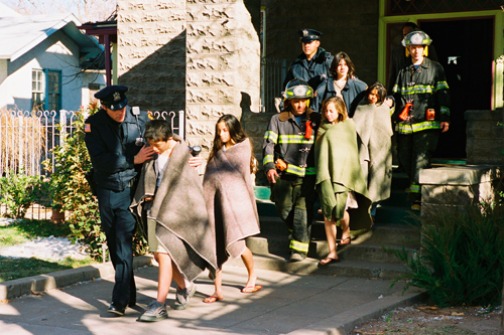In October 2000 the U.S. Congress passed a vital piece of legislation. The Victims of Trafficking and Violence Protection Act commits the U.S. government to use its political and economic influence to impede human trafficking around the globe.
On an international level, the legislation directs the U.S. State Department to issue an annual report evaluating the performance of individual governments as they confront and prosecute human traffickers. The report charts the incidence of trafficking within each country and examines the specific laws, policies, and practices that the government implements to resolve the problem. The country’s performance is then ranked into one of three”tiers”:
Tier 1: a country whose government complies fully with the act’s minimum standards.
Tier 2: a country whose government does not comply with the act’s minimum standards but is making significant efforts to bring itself into compliance with those standards.
Tier 3: a country whose government does not comply fully with the minimum standards and is not making a significant effort to do so.
First, the State Department publicly releases the report for the entire world to see. It does so with the hope that inactive or offending governments will be sufficiently embarrassed to change their behavior. Second, those countries ranked on Tier 3 are subject to stiff sanctions, including cuts to foreign aid and U.S. opposition to its applications before the World Bank and the International Monetary Fund.
The State Department released its first Trafficking in Persons (TIP) Report in July 2001 to great fanfare and controversy.
The U.S. Congress took another positive step when it authorized the creation within the State Department of a unit specifically charged to fight trafficking. In 2003 John Miller was appointed the first ambassador of the Office to Monitor and Combat Trafficking in Persons. Miller, who retired from his post in December 2006, turned out to be a tireless and effective advocate in the antislavery campaign.
On an international level, the legislation directs the U.S. State Department to issue an annual report evaluating the performance of individual governments as they confront and prosecute human traffickers. The report charts the incidence of trafficking within each country and examines the specific laws, policies, and practices that the government implements to resolve the problem. The country’s performance is then ranked into one of three”tiers”:
Tier 1: a country whose government complies fully with the act’s minimum standards.
Tier 2: a country whose government does not comply with the act’s minimum standards but is making significant efforts to bring itself into compliance with those standards.
Tier 3: a country whose government does not comply fully with the minimum standards and is not making a significant effort to do so.
First, the State Department publicly releases the report for the entire world to see. It does so with the hope that inactive or offending governments will be sufficiently embarrassed to change their behavior. Second, those countries ranked on Tier 3 are subject to stiff sanctions, including cuts to foreign aid and U.S. opposition to its applications before the World Bank and the International Monetary Fund.
The State Department released its first Trafficking in Persons (TIP) Report in July 2001 to great fanfare and controversy.
The U.S. Congress took another positive step when it authorized the creation within the State Department of a unit specifically charged to fight trafficking. In 2003 John Miller was appointed the first ambassador of the Office to Monitor and Combat Trafficking in Persons. Miller, who retired from his post in December 2006, turned out to be a tireless and effective advocate in the antislavery campaign.
Innocence Lost National Initiative
In June 2003, the FBI in conjunction with the Department of Justice Child Exploitation and Obscenity Section and the National Center for Missing and Exploited Children launched the Innocence Lost National Initiative. Their combined efforts were aimed at addressing the growing problem of domestic sex trafficking of children in the United States.
In 2008, five years since its inception, the Initiative has resulted in the development of 34 dedicated task forces and working groups throughout the U.S. involving federal, state and local law enforcement agencies working in tandem with U.S. Attorney's Offices.
To date, these groups have worked successfully to rescue nearly 900 children. Investigations have successfully led to the conviction of more than 500 pimps, madams, and their associates who exploit children through prostitution. These convictions have resulted in lengthy sentences including multiple 25-year-to-life sentences and the seizure of real property, vehicles, and monetary assets.
In 2008, five years since its inception, the Initiative has resulted in the development of 34 dedicated task forces and working groups throughout the U.S. involving federal, state and local law enforcement agencies working in tandem with U.S. Attorney's Offices.
To date, these groups have worked successfully to rescue nearly 900 children. Investigations have successfully led to the conviction of more than 500 pimps, madams, and their associates who exploit children through prostitution. These convictions have resulted in lengthy sentences including multiple 25-year-to-life sentences and the seizure of real property, vehicles, and monetary assets.

